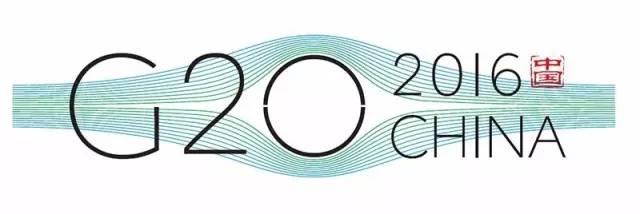José Antonio Ocampo talks about Realizing the Potential of China’s G20 Presidency
José Antonio Ocampo, Professor in the School of International and Public Affairs, and Co-President of the Initiative for Policy Dialogue at Columbia University, has recently published an article titled Realizing the Potential of China’s G20 Presidency (published before Brexit vote). This article reviews briefly the uncertainty that today’s global economy especially the emerging world is experiencing.

José Antonio Ocampo, Professor in the School of International and Public Affairs, and Co-President of the Initiative for Policy Dialogue at Columbia University, has recently published an article titled Realizing the Potential of China’s G20 Presidency (published before Brexit vote). This article reviews briefly the uncertainty that today’s global economy especially the emerging world is experiencing. It continues with an analysis of possible reforms and challenges G20 faces in order to fulfill its objects, as well as how China’s G20- leadership could be the impetus the group needs to initiate the reforms.
Realizing the Potential of China’s G20 Presidency
José Antonio Ocampo
JUL 8, 2016
Project Syndicate
NEW YORK – In the run-up to this September’s G20 summit in Hangzhou, China, there has been much talk about strengthening global macroeconomic cooperation and reforming the international monetary system. While this is far from the first time these topics have come up – in 2011, for example, France pushed for monetary reform, but was waylaid by the eurozone crisis – the time may be ripe for genuine progress.
Today’s global economy is plagued by uncertainty. Inconsistent data have lately raised questions about the strength of the United States’ economy. When it comes to Japan, the data are even more erratic. The European Union faces not only a still-weak recovery, but also the possibility of losing the United Kingdom as a member.
The emerging world, meanwhile, is experiencing a sharp economic slowdown. China, in particular, poses a significant risk, with many fearing that its downturn will be more severe than initially anticipated. This has spurred many to move their capital out of the country, generating strong downward pressure on the renminbi.
This highlights another source of uncertainty today: exchange rates. From the euro’s decline in 2014-2015 to the US dollar’s decline after the Federal Reserve signaled a postponement of its rate increases to the British pound’s recent drop, spurred by uncertainty surrounding the recent referendum on EU membership, major currencies have been all over the map in recent years. Some have even mooted suspicions of competitive devaluation.
At a time when a policy change in one country reverberates throughout the global economy, stronger cooperation could be vital to enhancing overall stability. And, indeed, to some extent, world leaders have already recognized this imperative.
Since the global financial crisis erupted in 2008, many initiatives aimed at boosting macroeconomic cooperation have been undertaken. For example, the G20 launched the Mutual Assessment Process, whereby member countries are evaluated on the basis of agreed indicators. The International Monetary Fund’s surveillance of macroeconomic policies has also been enhanced, with the implementation of a new set of multilateral surveillance tools that focus on major economies. These reforms, it has been said, make for the most elaborate system of multilateral macroeconomic cooperation in history.
And yet the G20 still finds it extremely difficult to fulfill its objective, agreed in 2009, to “act together to generate strong, sustainable, and balanced global growth.” Among the most notable obstacles has been the inability to compel some surplus economies to pursue growth-stimulating policies, which would compensate for the recessionary effects of adjustment in the deficit countries.
This failure is perhaps most pronounced within the eurozone, where Germany and the Netherlands have failed to reduce their surpluses, even as the deficit economies have undergone massive adjustments. As a result, the eurozone has gone from having an overall deficit in 2008 to being a major surplus region – a shock that has subtracted about 1% from global demand.
Macroeconomic cooperation clearly must be made more effective. But, as recent exchange-rate volatility has shown, even that will not be enough to stabilize the global economy. Monetary reform is also needed.
Such reform must include a reconsideration of the US dollar’s outsize role in shaping the international monetary system. In an increasingly multipolar world, would it not be more appropriate to build a multicurrency system and make greater use of the only global currency that has ever been created: the IMF’s Special Drawing Rights (SDRs)?
Establishing the SDR as the leading global reserve currency would have far-reaching benefits. It would allow all countries – not just major economic powers – to enjoy “seigniorage,” or the profits brought by money creation. Moreover, as the IMF economist Jacques Polak suggested long ago, the IMF could finance its programs by creating SDRs, eliminating the cumbersome negotiations required to secure credits or raise member quotas. And SDRs could support development; for example, they could be allocated in a larger proportion to developing countries, which have greater demand for foreign-exchange reserves.
China’s G20 leadership could be the impetus the group needs to initiate this shift. Zhou Xiaochuan, Governor of the People’s Bank of China, was among the first to question the dollar’s role, some seven years ago, and China has been working steadily to internationalize the renminbi. That effort reached a milestone in 2015, when the IMF Board agreed to add the renminbi to the basket of currencies that determines the SDR’s value.
Beyond the push to use SDRs more actively in IMF programs, governments could issue SDR-denominated bonds. Moreover, private banks could increase their use of this monetary unit, just as some European banks used the so-called European Currency Unit, helping to pave the way for the euro.
The G20’s China summit represents an important opportunity to improve macroeconomic cooperation and launch major reforms of the global monetary system. For the sake of balanced growth in developed and developing countries alike, it must not be squandered.
(Original article is posted at Project Syndicate editorial)